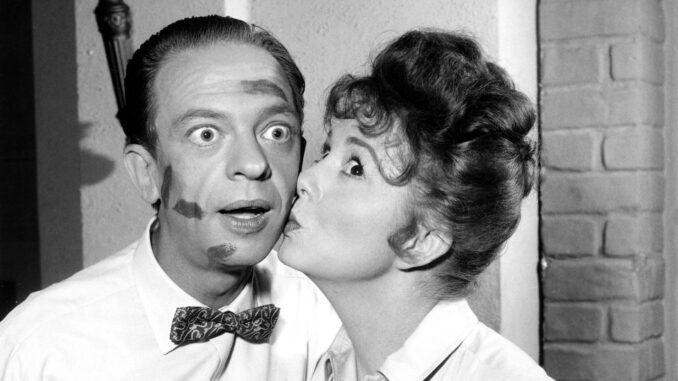
Why did Andy Griffith not have a funeral?
How ironic that a man who was a “symbol of values” was buried with no ceremony just five hours after his recent death. The family noted that this was “just the way he wanted it.” Sadly, as more and more people plan to do it “Andy’s way,” we are reminded that if the profession of funeral service does not educate the public about why we have funerals, nobody else will.
Close your eyes and remember the Andy Griffith Show: the little post office, the fishing hole, the general store, the barbershop, the jail—and the funeral home where people gathered when a member of the community died. Everyone knew and looked out for each other. Kids could play in the street (even though Barney would sometimes ticket people for jaywalking), and there were white picket fences. People gathered on front porches, and there was no Facebook, cell phones, or instant cheeseburgers to be found anywhere in Mayberry.
hile even in its prime the show was a step backward in time, the Griffith family’s decision about Andy’s funeral is a glimpse into the potentially tragic future of funeral service. As people are reflecting on the Andy Griffith that they knew and loved, they are describing him as the emblem of the 20th century values they often say they prize most. During the run of the Andy Griffith Show (1960-1968), we observed the very best of humanity—people who cared, people who cried, people who included children in important life events, people who gathered together for meaningful funerals when someone died.
Decades later the spirit of Mayberry lives on in Andy’s hometown of Mount Airy, North Carolina. Again, how ironic that Mount Airy’s annual fall festival, Mayberry Days, attracts thousands of people who come together to honor the memories that Andy and his cast of characters inspired—yet there was no opportunity to gather and pay tribute to the man who made it all possible.

Yes, change is a constant, but I suggest not all change is good. While we as Americans profess to want friendly communities anchored in excellent core values, we also want funerals that are easy, fast, and cheap—if we want them at all. I don’t suspect the folks in Mayberry would approve of how Andy was “laid to rest within five hours” with no public gathering. You see, those folks understood that you always have to say hello before you say goodbye. They understood that darkness was the chair upon which light sits. They understood the need to have authentic funerals, not to quickly dispose of the dead body.
You may think you should not have to educate people in your community about the value of funerals. But the truth is that people just like Andy Griffith’s family all across these United States are questioning the very need for funerals. So, I challenge you to consider: What is your funeral home’s cause? Why do you do what you do? And if your why is grounded in the essential healing reasons we as people have had funerals since the beginning of time, remind yourself that even as you face your day-to-day work challenges, you must also keep inspiring the people you come in contact with to learn the value of funerals. If you need help, consider checking out my recent collaboration on the new website meaningfulfunerals.com, which teaches about the importance of the elements of death ceremonies. Or, see my new poster titled “Why We Have Had Funerals Since the Beginning of Time,” available at centerforloss.com
